Summary of the training of journalists organized by the CIPADH from March 23-25 February. How do journalists cope with the human rights problematic in a tensed security context when reporting is constantly torn between fundamental ethic principles and politic and economic requirements set by press agencies.
This question is a key issue and has been debated by many speakers during the workshops through several complementary interventions: in an international environment subjected to numerous crisis where the journalists’ image is marred, the issues of deontology and ethics are more than ever essential to assert.
Evolution in journalistic trends
No doubt that journalism stands in the middle of a multifold crisis: budget cuts heavily impact press redactions. Journalists are increasingly and deliberately targeted in areas at risk since they are considered as representatives of the international community, thus embodying Western interests rather than defending local people’ point of view. This stereotype is forcing editors to take strong security measures to protect reporters, as underlined by Olivier Da Lage, RFI journalist and author. This constraint entails that the number of reporters drastically decrease, especially since the rise of new technologies allows journalists to work from the journal’s headquarters.
A new technological area
The rise of new technologies, in particular the importance of social networks in the dissemination of information is generally seen as a positive trend by the participants of the training. Thus, Pierre Bavaud, Journalist at the RTS, presents the case of Exiles project on this channel, which follows the journey of refugees. By combining the use of social networks, broadcasting interviews and increasing radio coverage, this interactive documentary introduces a new way of portraying this migration process.
The role of the journalist and his relation to human rights
The media and humanitarian actors have complementary roles. That is the conclusion drawn by Michel Sailhan, journalist for an international news agency and writer. He explained how a journalist spreading an information related to human rights allows humanitarian organizations, associations or NGOs, to benefit from it and to promote a militant action. The media have a great responsibility to educate and inform the general public. Moreover, if both actors are well informed and cooperate with each other, they have the potential to put pressure on governments to encourage them to resolve humanitarian crises.
However, the reporter is not a humanitarian actor: the latter also frequently criticizes this profession for often reducing and simplifying issues, as indicated Valérie Gorin, scientific collaborator at CERAH and researcher at Swiss National Fund. To prevent this misunderstanding, some training are provided to journalists in humanitarian reporting, like the one funded by the Aga Khan Foundation in Pakistan. However, it is important to keep in mind that a journalist is working for a company whose main interest is economic: selling information and making it attractive to a large audience.
The role of ethics and ethics in the journalistic profession
Ethics and Professional Conduct, were principles addressed by Benoît Grevisse, Professor at the Catholic University of Leuven, in his workshop where he differentiated them from morality. Indeed, these concepts are fundamental principles of journalism that are not supposed to be relative and which play an essential role in the journalistic function, in particular in its report on human rights.
The journalist must remain cautious and ensures the security of its team and its sources in priority, spreading information comes second. Similarly, the principle of impartiality should be respected at all costs: a journalist must not exaggerate the events to mobilize public opinion, but should always strive to tell the truth.
The question of how to broadcast a shocking information and / or violence in the media is also essential for a journalist: some criteria reported by Xavier Colin, Presenter of Geopolitis, can be set up, in order to limit the perception of the journalist as being a “scavenger” manipulating shocking images to sell information. Some ethical rules impose not to release death certificates.
In conclusion, this three-day training was meant to be an opportunity to reflect on the constraints and current journalism issues but it was also an opportunity to remind participants of the importance of always seeking to integrate human rights considerations daily.
Training’s programme
Tuesday 23rd February – Coverage of conflicts et protection of journalists
9-9.30am: Introduction: presentation of the participants and the training’s goals
9-30-10.45am: « Health-care in danger: issues and obstacles faced by the medical staff in high-risk situations ».
Chiara Zanette, representative of the « Health-Care in danger » program for the ICRC
11-12.15am: « The challenges of reporting on humanitarian issues and relations with NGOs»
Valérie Gorin, scientific collaborator in the CERAH (The Geneva Centre for Education and Research in Humanitarian Action) and FNS Senior Researcher at Lausanne University.
12.15-14pm: Lunch break
14-15.30pm: Tour of the ICRC with a presentation regarding international law and the protection of journalists in high-risks situations, the ICRC relationship with the journalists, the humanitarian reporting and the victims’ protection.
Claire Kaplun, in charge of Public Relations and Communication, spokesperson for the ICRC.
15.45-17pm: Guided tour of the Red-Cross and Red Crescent Museum
19pm: Dinner offered by the CIPADH
Wednesday 24th February – Writing and Acting for Human Rights
9-10.30am “Fieldwork and telling the truth: what’s the limit before endangering one’s sources (and oneself)?”
Olivier Da Lage, RFI journalist, specialist of international problematics and Middle-East
15 mn coffee-break
10.45- 12.15am: « Journalism in a crisis situation»
Michel Sailhan, journalist in the International Unit at Paris AFP and former AFP reporter in Cairo
12.15-14pm: Lunch break
14-15pm: Tour of the High Commissioner for Human Rights at Palais Wilson in the Communication and Press relations Unit
16h-17h30pm: Tour of the Palais des Nations (UN headquarters in Geneva)
Free Evening
Thursday 25th February – Ethical approaches and media evolutions
9.30-11am: Tour of the Tribune de Genève with Denis Etienne, Chief-editor assistant, followed by the Editorial Conference.
11.45-13am: « Governance deficit, non-respect of the Human Rights: is the journalist an accomplice if he/she remains silent?»
Xavier Colin, RTS journalist and presentator of the Geopolotis broadcasting.
13-14.30pm: Oriental buffet prepared by Syrians refugees and training’s debriefing
14.30-16pm «How can journalism take into account ethics and deontology in a context of new media dynamics?»
Benoît Grevisse, Doctor in Communication, Professor at the Catholic University of Louvain (Belgium) and director of the School of Journalism in Louvain.
16-17pm: « The importance of the past in order to understand the present and glance at the future. »
Pierre Bavaud, RTS Journalist.


